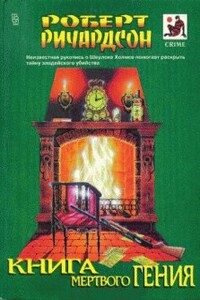Murder at Cape Three Points | страница 58
Abraham wanted grilled tilapia smothered in a spicy onion and tomato sauce. It was served whole, the head and all the bones included. Dawson didn’t feel like dealing with the task of extracting tiny bones, so he went with okro stew instead. This was the ultimate explosion of taste, what with the prawns, beef, smoked ham, and herring in a dense mélange of eggplant, tomato, ginger, chili pepper, and okro, which gave the dish its slick mouth feel. Dawson agreed that it was one of the best he’d ever tasted-except his mother’s, of course.
When Abraham dropped him off at the house, Dawson was pleasantly full but dying for a refreshing shower after the long day. Alas, the water pressure was low, and the flow from the showerhead was but a trickle. It was back to the old standby: a bucket bath. He came out of the bathroom feeling like a new man and pulled on a pair of shorts. A cool breeze blew gently in from the windows, lifting the curtains slightly. His phone rang.
“Hello?”
“Inspector Dawson?” His voice was rather boyish. “This is Jason Sarbah. I’m returning your call.”
“Thank you very much, Mr. Sarbah. I’m investigating the murder of Charles and Fiona Smith-Aidoo,” he said. “I would like to meet you for a few minutes to discuss it.”
“Ah, I see.” He paused. “Good. Perhaps we’ll now get to the bottom of it. Did you have a time in mind to meet?”
“As soon as possible, sir.”
“Let’s see… How about two o’clock tomorrow afternoon?”
“Perfect, sir.”
“Do you know where the Malgam offices are?”
“Yes, I do. I’ll see you tomorrow at two.”
DAWSON WENT THROUGH more of the papers in the STMA box. He came across three separate meetings for which the minutes described a sharp conflict between Kwesi DeSouza and Fiona Smith-Aidoo.
When he’d had enough of that, he put everything aside on the nightstand and sat back in bed. He had brought one of his mbiras with him from Accra, as he always did when traveling. It had two rows of graduated lengths of metal strips, sixteen in all, mounted on a handheld soundboard. When plucked, the strips produced notes similar to the sound of xylophone. Dawson’s mother had given him one as a gift when he was ten, and he had played it sporadically into his teens, when he discovered he could make his own mbira with simple, scavenged materials-even old bicycle spokes. The instrument had a thousand-year history with the Shona people of Zimbabwe, who still made the most complicated of mbiras with twenty-three or more keys.



